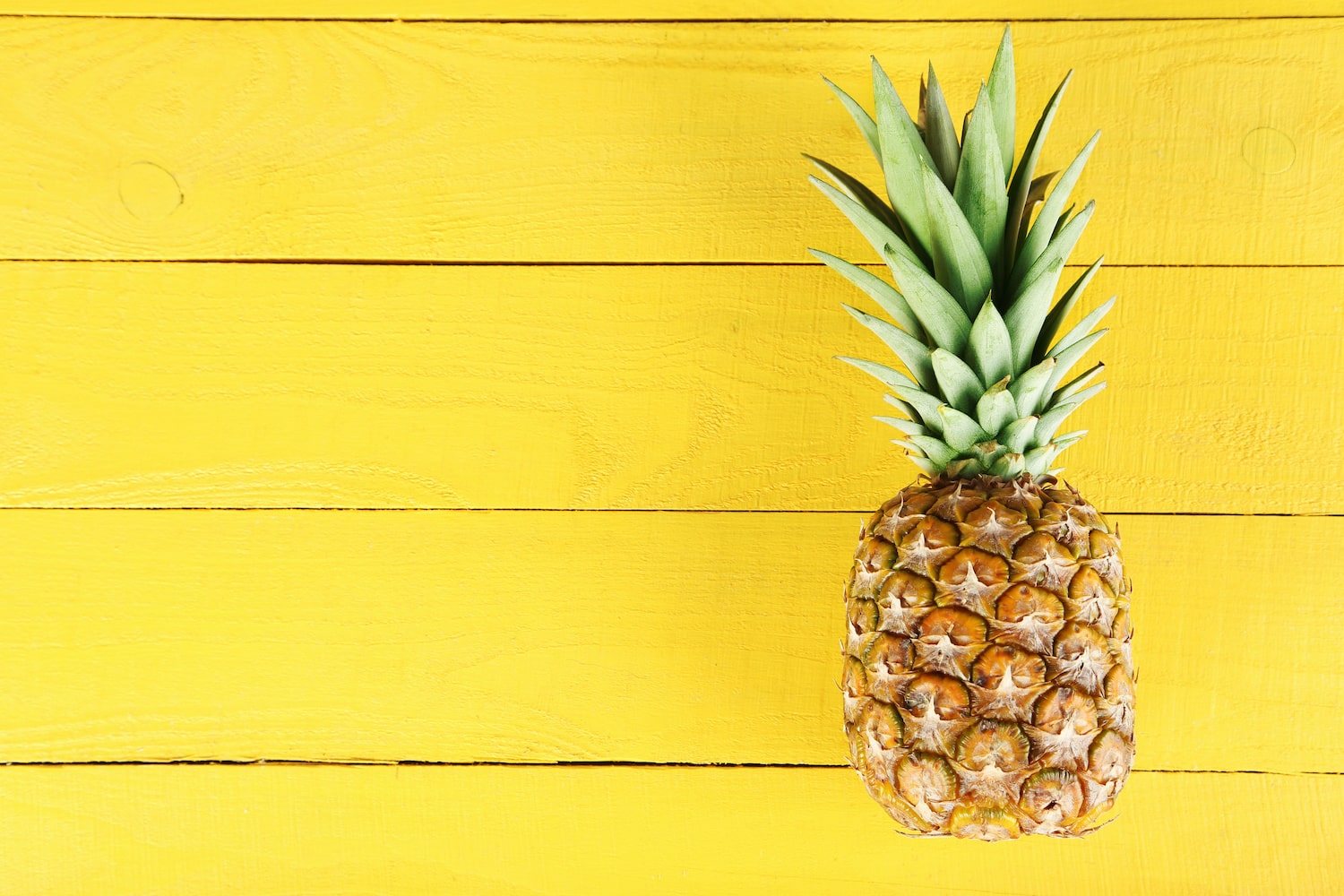When pregnancy is taking longer than you thought, you may find yourself looking for anything that might help. Just as fertility blogs are filled with ideas such as putting your legs in the air after intercourse or drinking raspberry tea, the topic of pineapple seems to come up often.
Pineapple has been a symbol in the infertility community for some time—You can find this fruit on socks, necklaces, pins, and shirts. It represents fertility awareness and support, but what is it about pineapple that holds the belief of helping you get pregnant? You might have heard of eating pineapple core after an embryo transfer to help with implantation and are wondering if there’s truth to it or just another fertility myth.
Pineapple, bromelain, and trying to conceive
The concept of pineapple and implantation comes from what’s inside the fruit itself—bromelain.
Bromelain is a group of enzymes that break down food for digestion. It’s found naturally in pineapple, with the most concentration of it in the core. You also find bromelain as a dietary supplement. It has some potential health benefits such as treating the symptoms of chronic sinusitis and osteoarthritis.
When it comes to fertility, the thought is by eating pineapple core after an in vitro fertilization (IVF) cycle or other fertility treatment, you’ll have increased chances of an embryo implanting in your uterus.
Unfortunately, there’s no good scientific study that tells us bromelain can help with implantation either. There are also no studies out there specifically on bromelain’s effectiveness on implantation after an IVF cycle. So how does this idea continue to make its rounds in the infertility community? It might be because bromelain may have anti-inflammatory and anticoagulant effects, both important when it comes to your fertility.
Can pineapple core help you get pregnant?
Studies have shown that bromelain might help decrease inflammation, but this hasn’t been studied in humans—just animals and human cells. Some reproductive conditions such as endometriosis are known to cause inflammation in the body. There have been studies that discuss how inflammation can make getting pregnant more difficult, so it makes sense that some people want to take bromelain supplements.
There’s also thought that bromelain has anticoagulant properties, which means it can reduce the chances of blood clots and help with blood flow to the uterus. Blood-thinners are sometimes prescribed by doctors for this reason, potentially making it easier for the embryo to attach to the uterine wall.
But it’s important to keep in mind that there’s more to implantation than decreased inflammation or focusing only on the uterine lining. Other factors need to be considered and endometriosis, for example, is more complex than taking a medication or supplement for inflammation.
The bottom line
In general, there’s nothing wrong with eating pineapple core to help with implantation, even though we can’t prove it works. After all, pineapple contains high levels of vitamin C to support your immune system. So the benefits of pineapple can impact your overall health, which in turn can only help you when it comes to trying to get pregnant.
Contact us today to make an appointment with one of our CCRM Fertility Specialists. We can help you develop a personalized treatment plan and answer your questions when it comes to your fertility.


